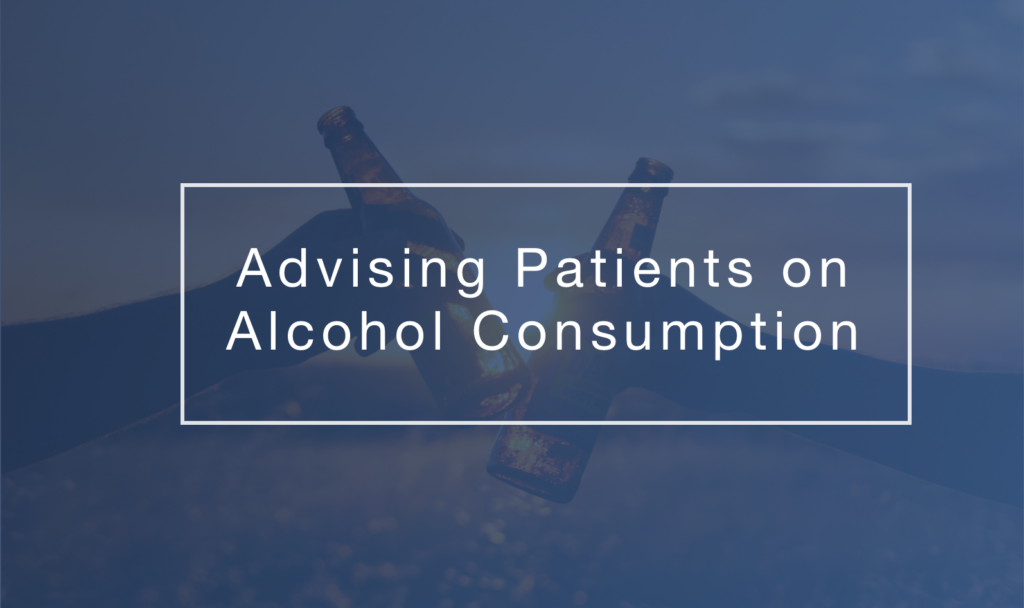
Alcohol consumption has always been a topic of public discussion; from the days of prohibition to more modern studies proposing health benefits of alcohol in moderation. Most recently, the Canadian Centre on Substance Use and Addiction changed their public stance on alcohol intake.
Their original 2011 guidelines put a weekly limit of 10 drinks for women and 15 for men. The new guidelines state there is no safe limit of alcohol consumption and suggest that any form of alcohol “is not good for your health and for those who consume alcohol, drinking less is better.”
With this new line of thinking making headlines, we asked the Figure 1 community for their thoughts and how they advise patients on alcohol consumption.
Here’s what more than 700 healthcare professionals had to say.
Controversial New Guidelines
We asked the Figure 1 community what they thought about the newly proposed Canadian alcohol consumption guidelines of no safe limit. While 43% of surveyed HCPs said they agree with the new guidelines, 34% did not agree and the remaining 23% remained unsure.
It ultimately remains unclear as to what the “correct” answer is, with many commenters suggesting that it is not a one size fits all approach. As one nurse practitioner put it, “a lot of factors need to be considered … it’s not the same for everyone.”
Warning Labels
While the healthcare jury is still out on what a safe alcohol limit is, the consensus is more clear when it comes to health warning labels on alcohol sold to the public.
A large majority of 76% of respondents agreed that alcohol needs to have improved warning labels. When it comes to advising individual patients, it is clear that healthcare professionals want to take a more holistic approach, but it is easy to understand why most HCPs believe improving transparency about alcohol’s potential health implications is important.
Should the United States Follow Suit?
In light of the new Canadian guidelines, we asked if their southern neighbors, the United States, should re-evaluate their alcohol consumption guidelines. Similar to the verdict of improving health labels, a total of 57% of surveyed HCPs agreed that the U.S. should take a look at their guidelines. This is not to say that they agree with the Canadian guidelines, but that an updated, science-backed approach would be a good thing for the U.S.
How Do You Advise Your Patients?
Finally, We asked the Figure 1 community to share how they discuss alcohol consumption with their patients and many agree on the same sentiment. It depends on the patient. Here are some of their responses:
“Always depends on disease process/comorbidities. In relatively healthy patients a glass of wine with dinner but try to refrain from daily or over consumption.”
– Registered Nurse
“One size is not a true fit for everyone. Ascertaining family history and patient medical history is always the place to start. Advise the effects of alcohol and drugs and explain the possibility of addiction even though most patients will feel they are ‘no where near addiction, it’s just recreation.’ Review anyway and recommend they limit the consumption as much as possible and provide resources for assistance.”
– Registered Nurse
“I am not generally called upon to advise in this capacity, but when pushed I will default to a position supporting moderation and limitations with respect to a person’s state of general health (and a suggestion to speak with their HCP for specific recommendations).”
– Technician
Overall, it is clear that when it comes to advising patients on alcohol consumption most healthcare professionals have similar thoughts. As a general stance, drinking in moderation is okay, but it is crucial to understand each individual patient’s circumstances and background to find an appropriate advisory plan for that patient.
Published December 12, 2022
Join the Conversation
Sign up for Figure 1 and be part of a global community of healthcare professionals gaining medical knowledge, securely sharing real patient cases, and improving outcomes.


